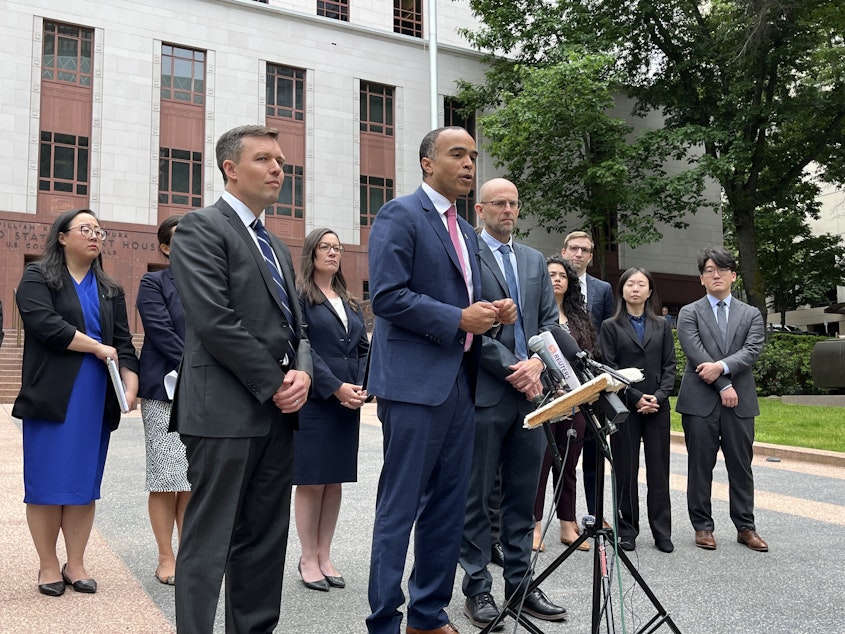Washington AG pledges 'fight' to preserve birthright citizenship as SCOTUS limits nationwide injunctions

Democratic attorneys general from five states including Washington said Friday they were disappointed but undeterred by the U.S. Supreme Court's ruling in favor of the Trump administration in a case surrounding birthright citizenship.
The high court’s 6-3 decision restricts the powers of federal judges to freeze President Donald Trump’s executive orders nationwide, including the one eliminating birthright citizenship for children of undocumented parents and those on temporary visas. An injunction on the executive order will remain in place for Washington state, however, since it is a plaintiff in the legal challenge.
The majority on the U.S. Supreme Court said the Trump administration is likely to suffer irreparable harm from the district courts’ entry of injunctions that likely exceed the authority conferred on them by federal law.
But the five attorneys general whose lawsuits landed before the court last month emphasized that birthright citizenship is unchanged for now, and said they will seek remedies in the next thirty days to maintain automatic citizenship for all babies born in the U.S.
Washington Attorney General Nick Brown called the court’s decision an “incredibly disappointing result.” He highlighted the language of Justice Sonia Sotomayor in her dissent, saying she noted “how fragile the rule of law is in America today, and how the court made it even more tenuous in this moment.”
Sponsored
“But we will not give up, we will continue to fight,” Brown said, against what he called Trump’s efforts to undermine the rule of law. “It is incumbent on all of us to not capitulate in this moment, to not accept these changes that we’re seeing from the president and the rest of the administration, and to continue to use every tool that we have available to challenge these unconstitutional orders.”
Sponsored
Brown said he’s confident that Trump’s limits on birthright citizenship will ultimately be found unconstitutional through legal challenges still being decided.
However, after 30 days the U.S. Supreme Court decision could allow some implementation of Trump’s order in states that have not sued to block it.
The Democratic attorneys general said that could create “chaos and confusion” if babies are given different status in different states. They will likely use the 30-day window to continue to argue that a nationwide injunction is needed.
Lisa Manheim, a professor at the University of Washington School of Law, said the U.S. Supreme Court decision creates a new threshold for nationwide injunctions. The states opposing Trump’s order must now convince federal judges not just that the order is unconstitutional, but that their own state would be irreparably harmed if the order is allowed to take effect elsewhere — in neighboring states, for example.
“If the state of Washington can convince the lower court that it needs the executive order to be enjoined across the country — because otherwise it’s just too confusing for Washington state to figure out who’s a citizen and who’s not a citizen — then the state will have an argument that it is entitled to one of these broad injunctions,” Manheim said.
Sponsored
But she said the majority decision was not surprising given the calls to rein in nationwide injunctions from people across the political spectrum in recent years. She said the issue now goes to the federal appeals courts to determine next steps.
In restricting nationwide injunctions, the Supreme Court decision held out class action lawsuits as another way for people to seek relief.
“That is something that lawyers are definitely going to be looking into,” Manheim said. But she said it’s difficult to bring those lawsuits.
So this ruling “makes it much more difficult for people who aren’t well-connected, who don’t have resources, to get relief from the courts when the government is acting unlawfully,” Manheim said.
She said people benefited indirectly from the nationwide injunction who lack the ability to bring a lawsuit themselves.




